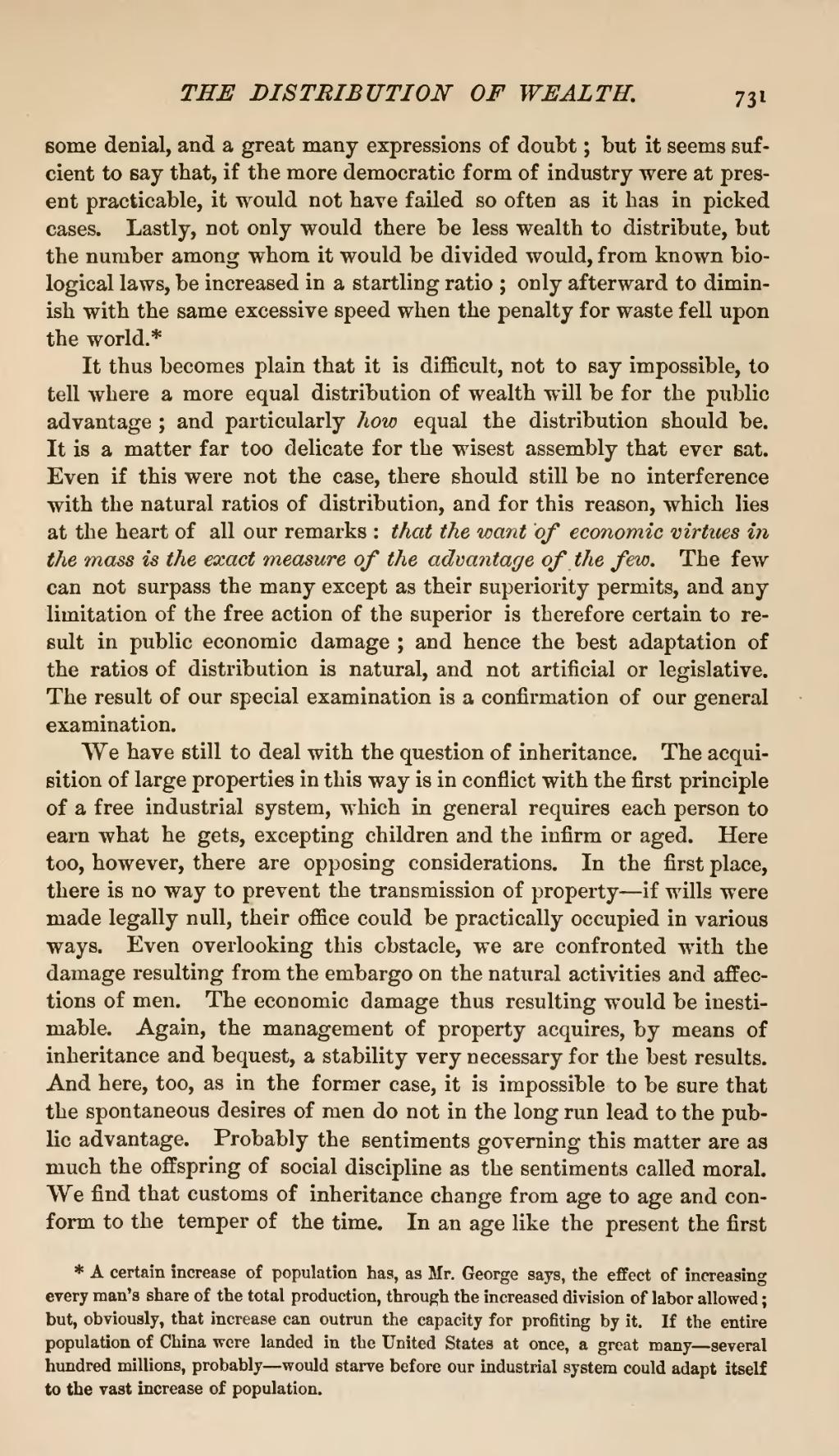some denial, and a great many expressions of doubt; but it seems sufficient to say that, if the more democratic form of industry were at present practicable, it would not have failed so often as it has in picked cases. Lastly, not only would there be less wealth to distribute, but the number among whom it would be divided would, from known biological laws, be increased in a startling ratio; only afterward to diminish with the same excessive speed when the penalty for waste fell upon the world.*
It thus becomes plain that it is difficult, not to say impossible, to tell where a more equal distribution of wealth will be for the public advantage; and particularly how equal the distribution should be. It is a matter far too delicate for the wisest assembly that ever sat. Even if this were not the case, there should still be no interference with the natural ratios of distribution, and for this reason, which lies at the heart of all our remarks: that the want of economic virtues in the mass is the exact measure of the advantage of the few. The few can not surpass the many except as their superiority permits, and any limitation of the free action of the superior is therefore certain to result in public economic damage; and hence the best adaptation of the ratios of distribution is natural, and not artificial or legislative. The result of our special examination is a confirmation of our general examination.
We have still to deal with the question of inheritance. The acquisition of large properties in this way is in conflict with the first principle of a free industrial system, which in general requires each person to earn what he gets, excepting children and the infirm or aged. Here too, however, there are opposing considerations. In the first place, there is no way to prevent the transmission of property—if wills were made legally null, their office could be practically occupied in various ways. Even overlooking this obstacle, we are confronted with the damage resulting from the embargo on the natural activities and affections of men. The economic damage thus resulting would be inestimable. Again, the management of property acquires, by means of inheritance and bequest, a stability very necessary for the best results. And here, too, as in the former case, it is impossible to be sure that the spontaneous desires of men do not in the long run lead to the public advantage. Probably the sentiments governing this matter are as much the offspring of social discipline as the sentiments called moral. We find that customs of inheritance change from age to age and conform to the temper of the time. In an age like the present the first
A certain increase of population has, as Mr. George says, the effect of increasing every man's share of the total production, through the increased division of labor allowed; but, obviously, that increase can outrun the capacity for profiting by it. If the entire population of China were landed in the United States at once, a great many—several hundred millions, probably—would starve before our industrial system could adapt itself to the vast increase of population.
